An idea is gaining traction that science fiction writers cannot ignore climate change. They should include our unpredictable climate in their worldbuilding even if only in the background to the main narrative. Or they should at least clarify whether, in their fictional world, science has solved our current climate catastrophe. Charlie Jane Anders made a strong case in her article Why Science Fiction Authors Need to be Writing About Climate Change Right Now.
Historically, science fiction has led the way within literature as a whole in responding to the evidence of a warming world. SF writers have achieved this by placing climate at centre-stage in their stories. The first novel I encountered in this field was J. G. Ballard’s deeply surreal dystopia The Drowned World (1962), which imagines a world of melting icecaps and a London that is totally submerged. Ballard wrote two more climate novels back in the 1960s—The Wind from Nowhere and The Burning World.
However, it is this century that has seen the emergence of climate-related fiction as a sizable sub-genre of SF. Kim Stanley Robinson is a major influence in this field with, for example, his Science in the Capital series, 2312 and New York 2140, as is Margaret Atwood with Oryx and Crake. Among my other personal picks are Gold Fame Citrus by Claire Vaye Watkins, The Osiris Project trilogy by E J Swift, Memory of Water by Emmi Itäranta, American War by Omar El Akkad, and Clade by James Bradley.
Within the literature mainstream, we’ve seen less willingness to put climate change and science in the foreground, but with some notable exceptions including Barbara Kingsolver’s Flight Behaviour, Maggie Gee’s The Ice People and The Flood, and Richard Powers’ The Overstory.
As for this year, I’m hugely excited that we’ll see a new climate change novel from James Bradley—Ghost Species. I’m looking forward to that one!
Until then, here are five novels, all published in 2019, in which climate catastrophe takes centre stage or at least steps into a spotlight.
Gun Island by Amitav Ghosh (John Murray, 2019)
A must-read novel for me because Amitav Ghosh, in his non-fiction book The Great Derangement, lamented that mainstream realist fiction has failed to incorporate climate change in its narratives. How has Ghosh himself tackled the subject of climate in Gun Island? The answer, partly, is by setting for his story in a region of the world under great threat from flooding and rising sea levels—the Sundarbans in the delta of the Bengal River—and by engaging with the problem of population displacement and people trafficking. In The Great Derangement he questions the legitimacy of realism in a climate-ravaged world, calling on scientists to embrace the improbable in an age of highly improbable weather events. Though Gun Island is set in the present day, Ghosh incorporates Bengali legend and departs from realism in the latter part of the novel through a number of unlikely coincidences. His novel spans from the US to India and Italy, and his characters range from a rare book dealer to a marine biologist and a trafficker. In doing so he presents climate change as a hyper object—one that brings together a continuity of experiences across the globe. A highly readable novel.
Buy the Book
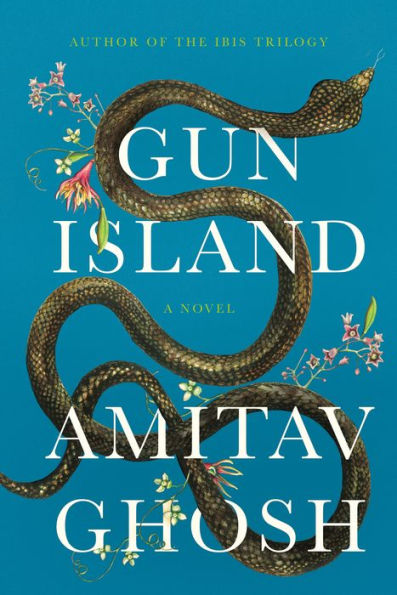

Gun Island
The Wall by John Lanchester (Faber and Faber, 2019)
Kavanagh is conscripted for two years to patrol a National Coastal Defence Structure with orders to prevent any climate refugees, or ‘others’, reaching British shores. The stakes are high for Kavanagh, for if he fails in his duties he is shipped out to sea. John Lanchester writes in pared back prose to match the monotonous life of a coastal defender. I found myself completely drawn into his fearful world. During his leave, Kavanagh visits his parents and we witness the inter-generational aggravation between them. His parents had experienced the good life of plentiful food, jobs and travel in the days before political extremism and climate catastrophe. In the latter part of The Wall, Kavanagh encounters offshore communities of refugees and deserters, introducing a slightly more upbeat note to the novel.
Buy the Book
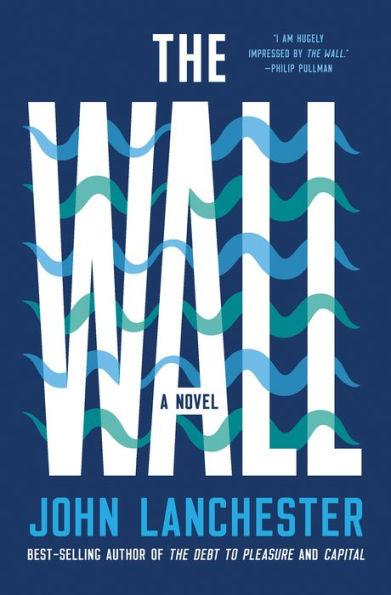

The Wall
Always North by Vicki Jarrett (Unsung Stories, 2019)
Always North is a compelling eco-thriller that jumps forward in time to become a grim dystopia. Initially the story is set on a seismic survey vessel, operating illegally in Arctic waters, with a crew that is fearful of attack from polar bears. The seismic operation is described in totally convincing detail. We revisit the crew members, including the novel’s main character, Isobel, some years later when they’re struggling to survive in a climate-ravaged world. Their desperation brought to mind the dystopian world of Gold Fame Citrus by Claire Vaye Watkins.
Buy the Book
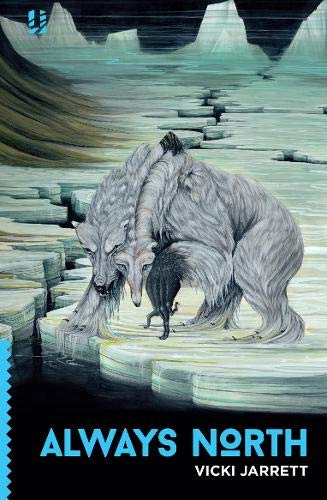

Always North
The Migration by Helen Marshall (Titan, 2019)
The Migration imagines a world where storms and flooding are becoming commonplace, including in a near-future Oxford, the novel’s setting. This novel embraces the fantastical and borders on horror, with a story centered on a teenage protagonist, Sophie, and her younger sister, Kira, who is stricken by a mystery immune disorder. The girls’ Aunt Irene is a professor of historical epidemiology with a special interest in the Black Death, and she joins the team searching for a cure. In the past year, Marshall has also written the forward to An Invite to Eternity—Tales of Nature Disrupted (Calque Press, Ed Gary Budden and Marian Womack, 2019), a fascinating anthology of eco short stories, several of which appear in translation.
Buy the Book
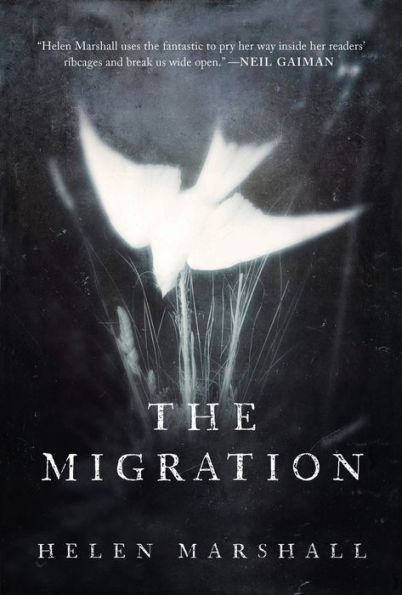

The Migration
Stillicide by Cynan Jones (Granta, 2019)
This short, poetic novel knocked me off my feet. I am always drawn to novels with a fragmented structure, and Stillicide is a fine example. The story is told through multiple voices in loosely connected vignettes, depicting a future UK trying to cope with severe water shortages. And the solution hit on by scientists and engineers is to float icebergs from the Arctic to home shores. Beautifully written, a real treat.
Buy the Book
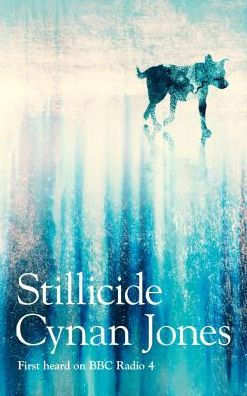

Stillicide
 Anne Charnock won the Arthur C. Clarke Award in 2018 for Dreams Before the Start of Time. She lives on the Isle of Bute, Scotland. Anne’s latest novel, Bridge 108, follows a climate refugee, Caleb, who becomes separated from his parents in their escape from a drought-stricken Spain, and is trafficked to England. Told from the perspective of Caleb as he grows towards adulthood, and from the perspectives of others he meets on his perilous journey.
Anne Charnock won the Arthur C. Clarke Award in 2018 for Dreams Before the Start of Time. She lives on the Isle of Bute, Scotland. Anne’s latest novel, Bridge 108, follows a climate refugee, Caleb, who becomes separated from his parents in their escape from a drought-stricken Spain, and is trafficked to England. Told from the perspective of Caleb as he grows towards adulthood, and from the perspectives of others he meets on his perilous journey.










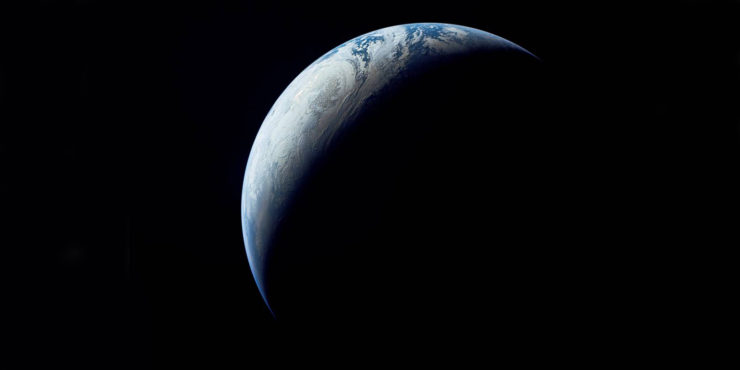
Also within this century, Arctic Rising by Tobias Buckell
Although not set on Earth, H. Beam Piper’s Little Fuzzy (1962) is set in motion by anthropogenic climate change: humans on Zarathustra drain a vast swamp, which reduces rainfall downwind of the swamp, which causes a massive, widespread drought, which causes previously unknown natives to migrate into the region populated by humans.
Even though the science behind the drought is clear, a senior Chartered Zarathustra Company’s first instinct is to deny the causal chain of events on the grounds it makes the company look bad. This subplot gets dropped quickly, because the revelation the planet has natives has much more serious implications for the Company than whether or not it’s triggering climate changes on a continental scale.
Earth, by David Brin, has global warming as part of the background.
@2,
I wonder if any SF novels other than that, and A Planet for Texans, have courtroom dramas as a major part of the resolution. Most SF seems to steer clear of that sort of thing.
I am doing the Book Riot Read Harder challenge this year and one type of book on the list is a book about climate change and I was having a hard time selecting a book as I tend to fall into despair when thinking about climate change but I’ve added The Migration by Helen Marshall to my TBR, thanks for the list!
@@@@@ 4, wiredog
I wonder if any SF novels other than that, and A Planet for Texans, have courtroom dramas as a major part of the resolution. Most SF seems to steer clear of that sort of thing.
Elizabeth Moon’s Once a Hero starts with a court martial, to resolve the action at the end of Winning Colors.
Poul Anderson’s The Winter of the World features extreme global cooling. It was the result of an atomic war, triggering a nuclear winter.
The Water Knife by Paolo Bacigalupi. EOS.
It’s been ages since I read it, but remember having a soft spot for Starhawk’s The Fifth Sacred Thing.
Greg Egan’s Perihelion Summer.
The Tangled Lands by Paolo Bacigalupi is the best climate change book I’ve read. Technically, it doesn’t have climate change, its a secondary world fantasy. But the climate change metaphor is pretty clear, and it does a great job of illustrating why its so difficult to fight. And how its intertwined with other issues of class/ power
Gamechanger- L.X. Beckett. An excellent novel set in a world starting to recover from climate change. One of the themes is – are humans willing to go the distance and keep up with the recovery program for the many decades it will take? Or will they revert to harmful behavior the moment the crisis isn’t so obvious?
Steven Gould’s Blind Waves deals with political and social fallout from warming-caused flooding along the American coasts.
And also has a very cool home-brew submarine.
Ursula le Guin’s novella The New Atlantis is all about the political consequences of climate change. It’s not a cheerful tale.
http://www.lightspeedmagazine.com/fiction/the-new-atlantis/
“Austral”, by Paul McAuley – the greatest unrecognized eco-SF!
There is a surprising epic hidden on those pages.
Roger Zelazny’s Damnation Alley
Fritz Leiber’s The Night of the Long Knives
It’s only a short story, but what a story! Leiber’s A Pale of Air
Walter M. Miller’s A Canticle for Leibowitz
Harlan Ellison’s A Boy and His Dog
Somebody wrote of an aunt who despised SF, sight unread. She ended up staying in his place, alone. She searched his bookshelves for something, anything, to relieve the tedium. She decided A Boy and His Dog should be safe enough.
Though not recent, The Sheep Look Up imagined a terrible environment wracked by pollution. It eventually got so bad, the entire planet got filthy. Does it matter if it’s 72° and balmy if you can’t go outside without an air filter?
My understanding is that the first climate change novel was Australian writer George Turner’s The Sea and Summer in 1987. Not convinced Ballard’s The Drowned World was anything to do with climate change – wasn’t it just part of his series of transforming worlds including The Crystal Works etc.
Great topic!!! I’ve recently started to compile a list. Here are a few more that are recently written
All City by Alex DiFrancesco
The End We Start From by Megan Hunter
The Ice by Laline Paull
The Mercy Journals by Claudia Casper
The End of the Ocean (Klimakvartetten #2) by Maja Lunde
The Resisters by Gish JenG
Goldilocks by Laura Lam
Blackfish City by Sam J. Miller
there are books about climate change that are written for children and teenagers such as exodus by Julie Bertagna in the early 2000s.
I’d add The Wind-Up Girl by Paolo Bacigalupi; even though it has as much to do about corporate monoculture and the loss of genetic biodiversity, there are deep threads of climate change throughout. I feel like pretty much anything by Bacigalupi will beat this drum to some degree or another